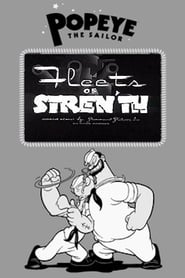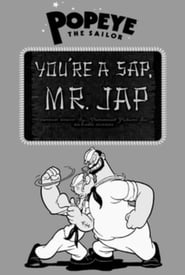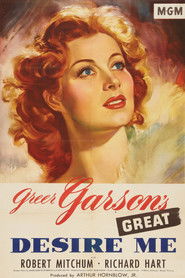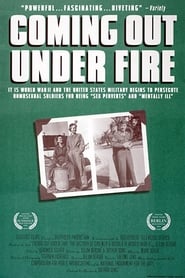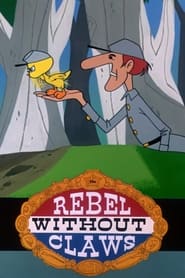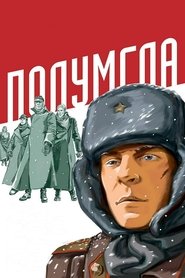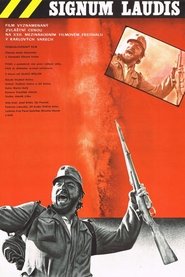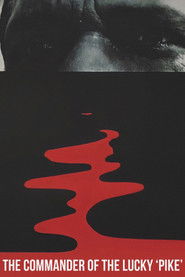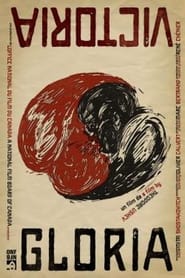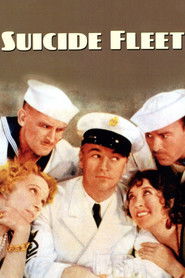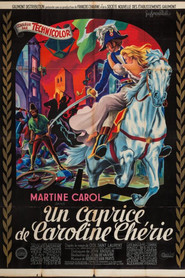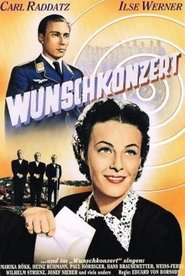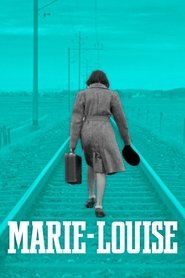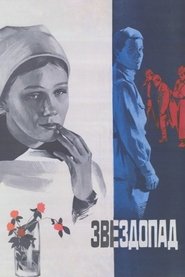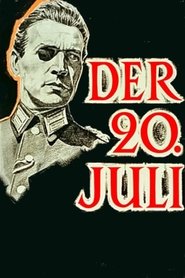Top Rated War Movies on Pantaflix - Page 160
-
Fleets of Stren'th
1942
Fleets of Stren'th
1942
star 5.7When enemy planes attack the battleship he's serving on, Popeye fights back. -
You're a Sap, Mr. Jap
1942
star 5.4Spinach turns Popeye into a one-man US Navy during a World War II battle against the Allies' adversaries. -
Desire Me
1947
Desire Me
1947
star 5.7A war widow falls in love with the man who informed her of her husband's death. -
Coming Out Under Fire
1994
star 3.9A historical account of military policy regarding homosexuality during World War II. The documentary includes interviews with several homosexual WWII veterans. -
The Rebel Without Claws
1961
star 6.4The Confederate Army wants to get an important message through to General Lee, but all the carrier pigeons have been shot down. Tweety steps in. -
Twilight
2005
Twilight
2005
star 3.5In the last winter of WWII a group of captive German soldiers is brought to a remote Russian village, where widows, a child and a crippled are the only ones left. This is a military drama about those, who can love and forgive. -
Mercedes Runs Away from the Chase
1981
star 4.1The film is set during World War II. After capturing the "trophy" Mercedes, a group of scouts, disguised as German officers commits a daring raid behind enemy lines (the 116th Motorized Division) on roads controlled by the enemy. -
The Medal
1980
The Medal
1980
star 6.7The trenches of World War I provide for a captivating backdrop to the drama of Corporal Hoferik. In his devotion to the Habsburg Monarchy, he fanatically carries out his military orders, but he ultimately suffers the Empire's disfavor. -
Hitler in Colour
2005
Hitler in Colour
2005
star 7.9Documentary using only original colour footage charts the 12 years from Adolf Hitler's rise to power to the fall of Berlin in 1945. Complemented by eyewitness material, tracks the dramatic transformation of Germany into a Nazi state, looks into Hitler's relationship with his lover Eva Braun and replicates pivotal events, including Nazi rallies, the invasion of Poland, Hitler's meeting with Lloyd George, the horrors of Buchenwald concentration camp, Warsaw's Jewish Ghetto, the Battle of Britain and the fall of Berlin. -
Breakthrough
2005
Breakthrough
2005
star 4.7Russian paratroopers company meets superior forces of Chechen separatists during raid in mountains and accept uphill battle with no chance to survive. -
The Commander of the Lucky 'Pike'
1973
star 51942, Polar region. The Germans are preparing to capture Murmansk. The submarine Sch-721 is considered lucky, and its captain Aleksei Strogov has the ability to extricate himself from the most difficult situations. He also develops tactics for a periscope-free torpedo attack, despite the skepticism of colleagues and management. And now, when the Happy "Pike" had to take on board the crew of another Soviet submarine, and she was on the seabed with almost no oxygen, Aleksei manages to save people and perform the operation, paying for it with his life... -
Gloria Victoria
2013
Gloria Victoria
2013
star 5.7Theodore Ushev’s acclaimed 20th century trilogy concludes with this brilliant fusion of 3D and Russian constructivist-styled animation. Recycling elements of surrealism and cubism, this animated short by Theodore Ushev focuses on the relationship between art and war. Propelled by the exalting “invasion” theme from Shostakovich’s Leningrad Symphony (No. 7), the film presents imagery of combat fronts and massacres, leading us from Dresden to Guernica, from the Spanish Civil War to Star Wars. It is at once a symphony that serves the war machine, that stirs the masses, and art that mourns the dead, voices its outrage and calls for peace. -
Suicide Fleet
1931
Suicide Fleet
1931
star 4.3Three US sailors aboard a decoy ship fight German U-boats in World War I and try to win Sally who works on the Coney Island midway. -
The Great King
1942
The Great King
1942
star 6.9King Frederick II (aka "Frederick the Great") of Prussia is engaged in a major battle against the Austrian army at Kunersdorf, and things aren't going well. The Austrians are inflicting major casualties, and his army is beginning to crumble. Defeat seems inevitable when a combination of events gives him hope that he may pull victory from the jaws of defeat after all. -
A Caprice of Darling Caroline
1953
star 4.1Caroline de Bienre, the 16-year-old daughter of French nobility, meets the handsome rogue, Gaston de Sallanches, who is expected to ask for the hand of her older, plainer sister in marriage. Gaston instead joins Caroline in her secret hiding place in the château's attic, where the infatuated Caroline begins an affair with him. Meanwhile, she is being courted by the dull, sincere Livio, but holds him off since she is in love with Gaston. When the revolution of 1789 breaks out Caroline is sent to a convent but her carriage is waylaid. She escapes and makes her way to Gaston's home, where she finds him in the arms of his mistress. She is angry and then agrees to marry Livio, now an out-of-favor revolutionary and a marked man, and Caroline is also now on the death list. -
Request Concert
1940
Request Concert
1940
star 6.1The young, attractive Inge Wagner becomes acquainted with Herbert Koch during the Berlin Olympics, his flight officer insignia having first caught her eye. Sparks fly immediately between the two and they soon decide to marry. But Herbert is called off on a secret mission in Spain. -
The Blacks
2009
The Blacks
2009
star 6War. A city under the siege. The truce has been recently signed, and the squad known as the 'Blacks', who used to do the dirty jobs, needs to be disbanded. Ivo, the squad commander who has lost three of his soldiers, prepares the action to retrieve their dead bodies from the forest and, despite the ceasefire, blow up the dam, thus causing a great damage to the enemy: The survived members of the squad, tortured by their personal doubts and guilt, move into action. On the battlefield, they find the enemy they are searching for is in the place they least expect - inside themselves. -
Marie-Louise
1944
Marie-Louise
1944
star 6The titular Marie-Louise is a young French lass who is evacuated to Switzerland when her country is overrun by the Nazis. Suffering a nervous breakdown, she is given comfort and shelter by a wealthy family. Unfortunately, living in the lap of luxury makes Marie-Louise hesitant to return home to her mother and war torn home. Eventually the girl comes to her senses, but it isn't easy. -
Falling Stars
1981
Falling Stars
1981
star 3.4Falling Star is based on three stories by the contemporary Russian writer Viktor Astafyev and centers on a young soldier on the front lines who is wounded and taken to the hospital. Once there, he muses about his childhood and a little girl he had loved - someone who could easily have grown up to be the nurse that is attending to him now. As he recuperates, he and the nurse fall in love and he very much wants to marry her. At this point, the nurse's mother comes for a visit and advises him against such an action because if they were to marry and he were subsequently killed or maimed in action - the fighting is still close to the hospital - the nurse would suffer much more than if he just left her alone. Now it is up to the soldier to make a decision one way or the other. -
The Plot to Assassinate Hitler
1955
star 5.8A disillusioned Wehrmacht officer named Colonel Claus von Stauffenberg and his co-conspirators attempt to assassinate Adolf Hitler on 20 July 1944.
 Netflix
Netflix
 Amazon Prime Video
Amazon Prime Video
 Apple iTunes
Apple iTunes
 Apple TV Plus
Apple TV Plus
 Disney Plus
Disney Plus
 Google Play Movies
Google Play Movies
 Paramount Plus
Paramount Plus
 Hulu
Hulu
 HBO Max
HBO Max
 YouTube
YouTube
 fuboTV
fuboTV
 Peacock
Peacock
 Peacock Premium
Peacock Premium
 Amazon Video
Amazon Video
 The Roku Channel
The Roku Channel
 AMC+
AMC+
 Kocowa
Kocowa
 Hoopla
Hoopla
 The CW
The CW
 Vudu
Vudu
 Starz
Starz
 Showtime
Showtime
 PBS
PBS
 Pantaflix
Pantaflix
 FXNow
FXNow
 Tubi TV
Tubi TV
 Kanopy
Kanopy
 Comedy Central
Comedy Central
 Crunchyroll
Crunchyroll
 Microsoft Store
Microsoft Store
 Redbox
Redbox
 Sun Nxt
Sun Nxt
 ABC
ABC
 DIRECTV
DIRECTV
 Crackle
Crackle
 Fandor
Fandor
 Plex
Plex
